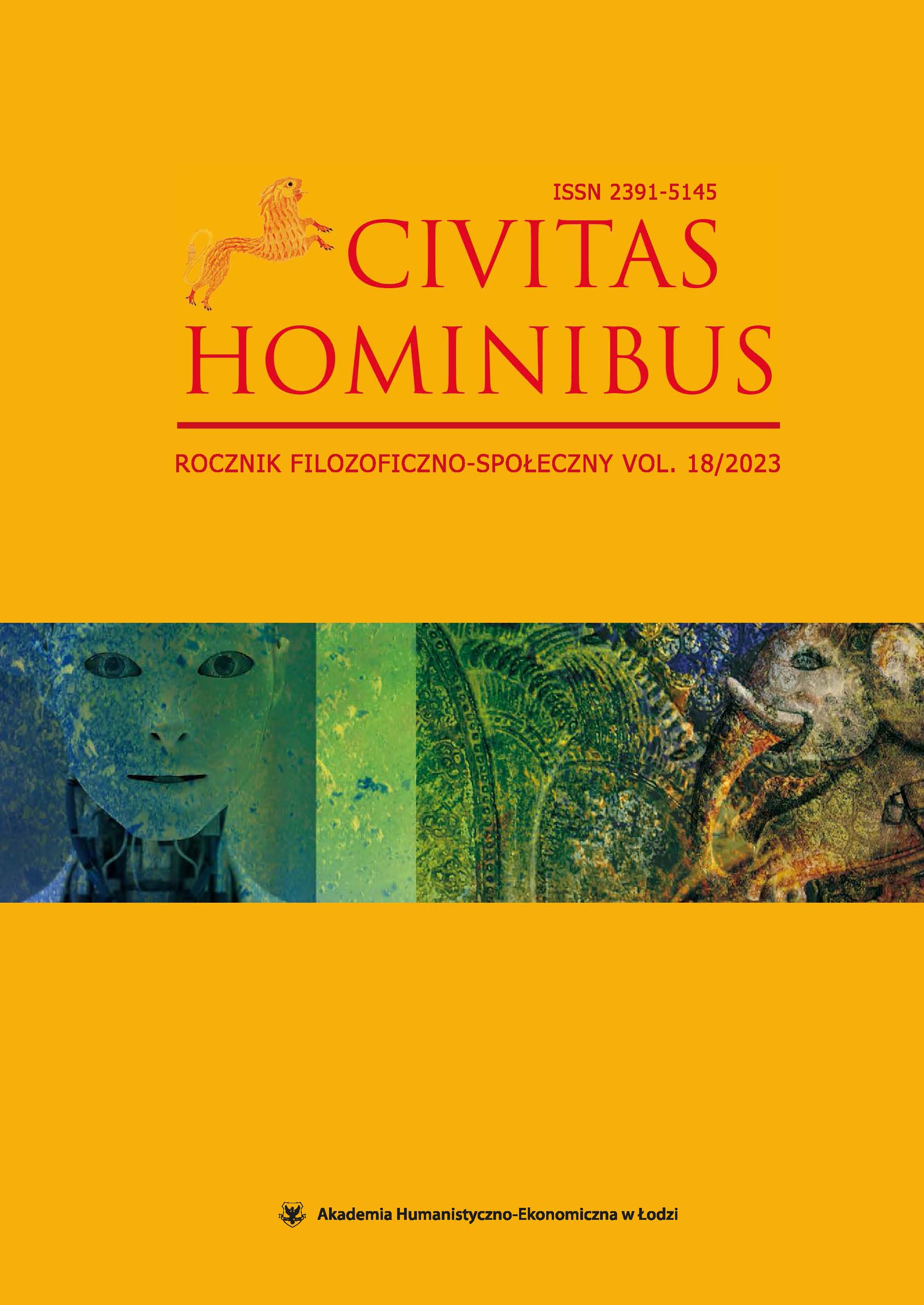The moral subject in modern health care – ethical dilemmas and moral distress in nursing
DOI:
https://doi.org/10.25312/2391-5145.18/2023_08nbKeywords:
ethical dilemmas, moral distress, new technologies, artificial intelligenceAbstract
As a health care professional, a nurse should support not only the principle of nonmaleficence, but also beneficence and respect patient’s autonomy and fair distribution of resources. Due to the inclusion of new technologies in patient care, it is worth analysing the need to adapt the existing ethical principles in nursing in order to provide the best possible care, build a therapeutic relationship with the patient and counteract the occurrence of ethical dilemmas and moral distress.
Downloads
References
Booth R.G., Strudwick G., McBride S., O’Connor S., Solano López A.L., How the nursing profession should adapt for a digital future, „The BMJ” 2021, No. 373. Burston A.S., Tuckett A.G., Moral distress in nursing, „Nursing Ethics” 2013, No. 20(3).
Corley M., Nurse moral distress: a proposed theory and research agenda, „Nursing Ethics” 2002, No. 9(6).
Epstein E.G., Delgado S., Understanding and Addressing Moral Distress. The Phenomenon of Moral Distress, „The Online Journal of Issues in Nursing” 2010, No. 15(3).
Ferrell B.R., Understanding the moral distress of nurses witnessing medically futile care, „Oncology Nursing Forum” 2006, No. 33(5).
Jameton A., What Moral Distress in Nursing History Could Suggest about the Future of Health Care, „AMA Journal of Ethics” 2017, No. 19(6). Jantos M., Etyka zawodowa pielęgniarek – powołanie czy profesjonalizm (etos pracy i życia), „Państwo i Społeczeństwo” 2009, nr 2.
Janus B., Dylematy etyczne w pracy pielęgniarki – model podejmowania decyzji, wystąpienie wygłoszone na konferencji „Kompetencje pielęgniarek i położnych a odpowiedzialność moralno-zawodowa”, 14.10.2005, https://www.pielegniarki.info.pl/files/1134761959.pdf [dostęp: 8.05.2023]. Kim M., Hong B., Nursing Ethical Considerations in the AI-Based Technologies, „J-Institute” 2022, Vol. 7, No. 2.
Kodeks etyki zawodowej pielęgniarki i położnej Rzeczypospolitej Polskiej z dnia 9 grudnia 2003 r., Naczelna Izba Pielęgniarek i Położnych, Warszawa 2023.
Korczak M., Refleksje na temat Kodeksu etyki zawodowej polskiej pielęgniarki, „Studia Medyczne” 2008, nr 9.
Kubiak-Curyl A., Rekomendacje OECD jako ramy etyczne i prawne dla rozwoju sztucznej inteligencji, „Studia Prawnicze. Rozprawy i materiały” 2020, nr 1.
Nielsen S., Langensiepen S., Madi M., Elissen M., Stephan A., Meyer G., Implementing ethical aspects in the development of a robotic system for nursing care: a qualitative approach, „BMC Nursing” 2022, No. 21.
Savel R.H., Munro C.L., Moral Distress, Moral Courage, „American Journal of Critical Care” 2015, No. 24(4).
Ulrich C.M., Grady C., Introduction, [w:] C.M. Ulrich, C. Grady (red.), Moral Distress in the Health Professions, Springer, Cham 2018.
Ustawa z dnia 15 lipca 2011 r. o zawodach pielęgniarki i położnej, Dz.U. 2011, nr 174, poz. 1039.
Walton M.K., Sources of Moral Distress, [w:] C.M. Ulrich, C. Grady (red.), Moral Distress in the Health Professions, Springer, Cham 2018.
Wujtewicz M., Wujtewicz M.A., Owczuk R., Konflikty na oddziale anestezjologii i intensywnej terapii, „Anaesthesiology Intensive Therapy” 2015, No. 47(4).
Zalewski Z., Etyczne i prawne aspekty komunikowania się pielęgniarki z pacjentem, [w:] A. Kwiatkowska, E. Krajewska-Kułak, W. Panek (red.), Komunikowanie interpersonalne w pielęgniarstwie, PZWL, Warszawa 2016.
Downloads
Published
Issue
Section
License
Copyright (c) 2023 Akademia Humanistyczno-Ekonomiczna w Łodzi

This work is licensed under a Creative Commons Attribution-ShareAlike 4.0 International License.

